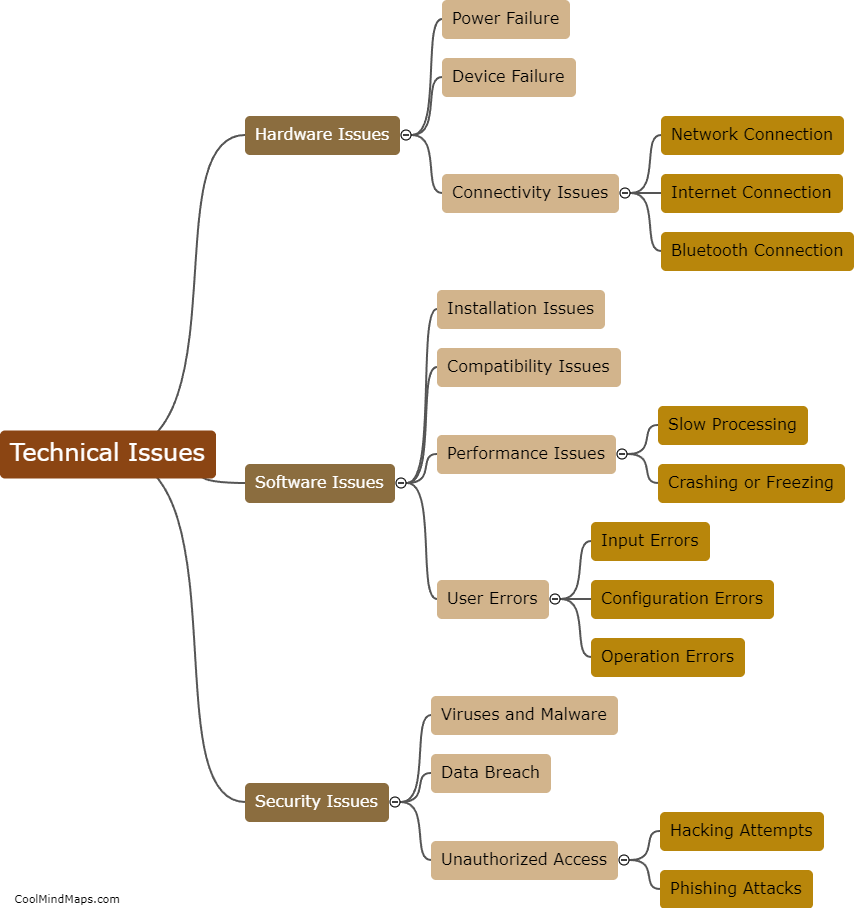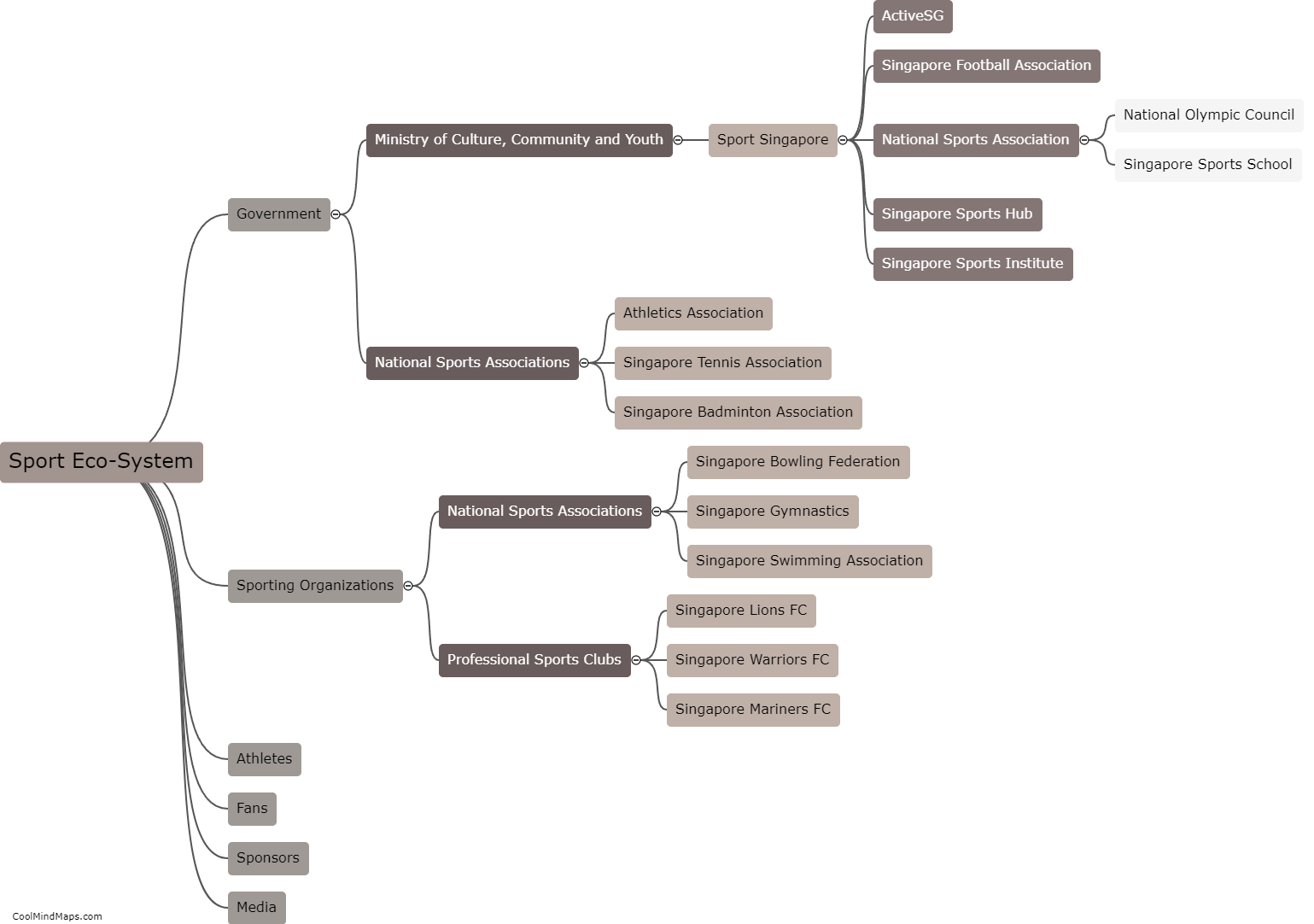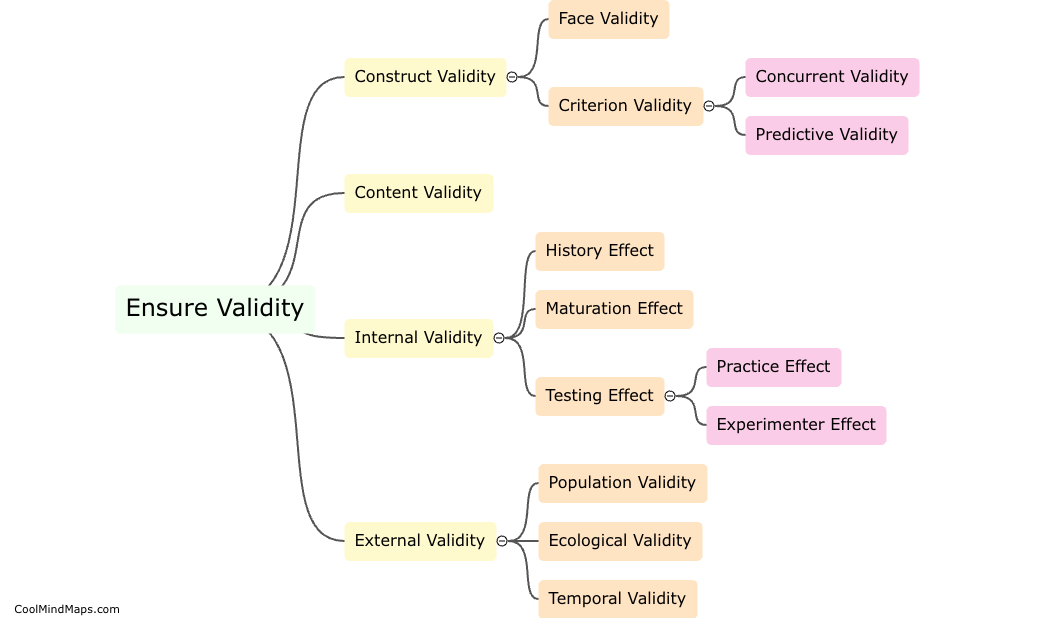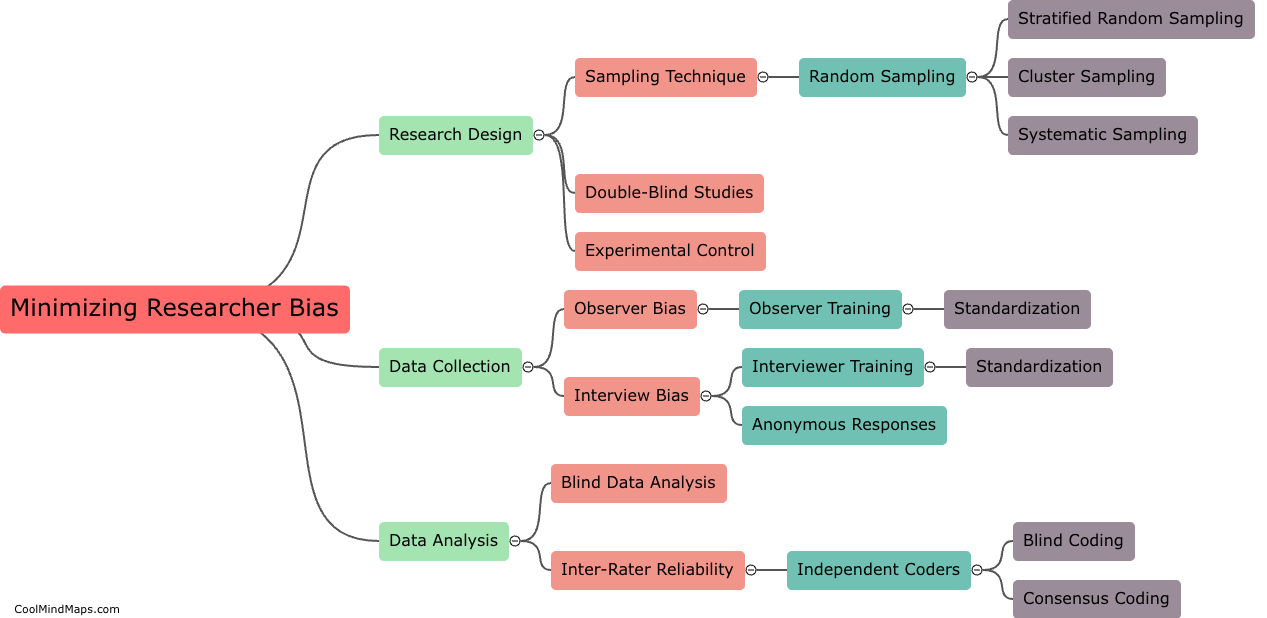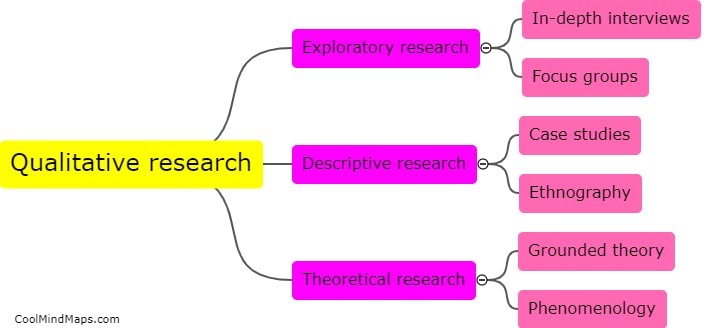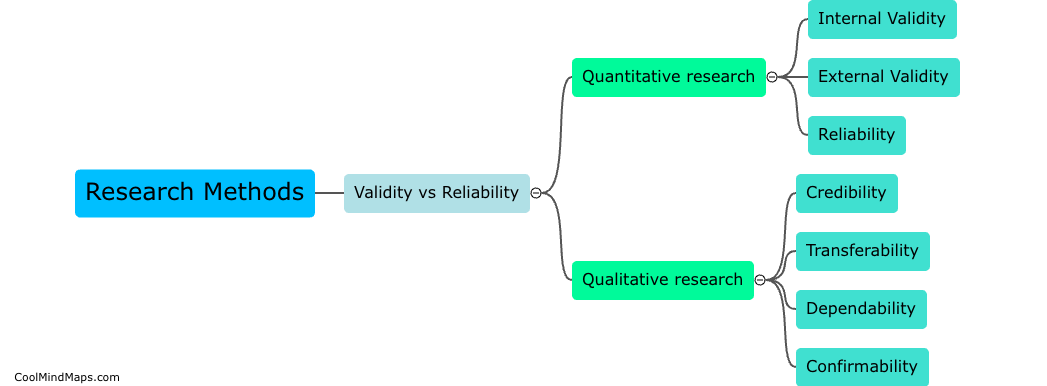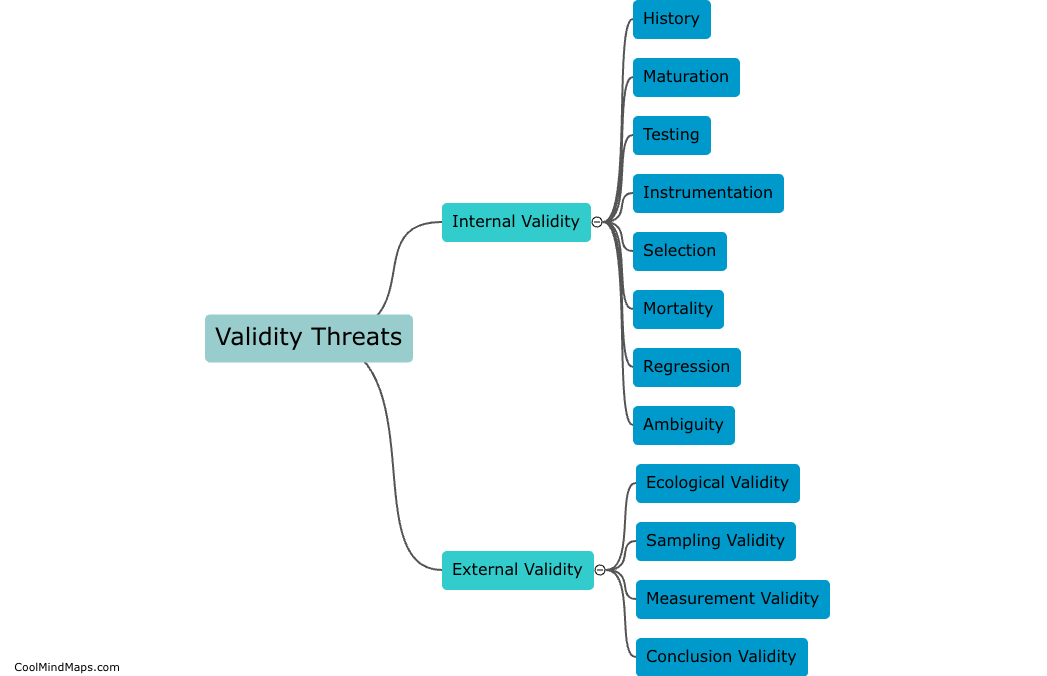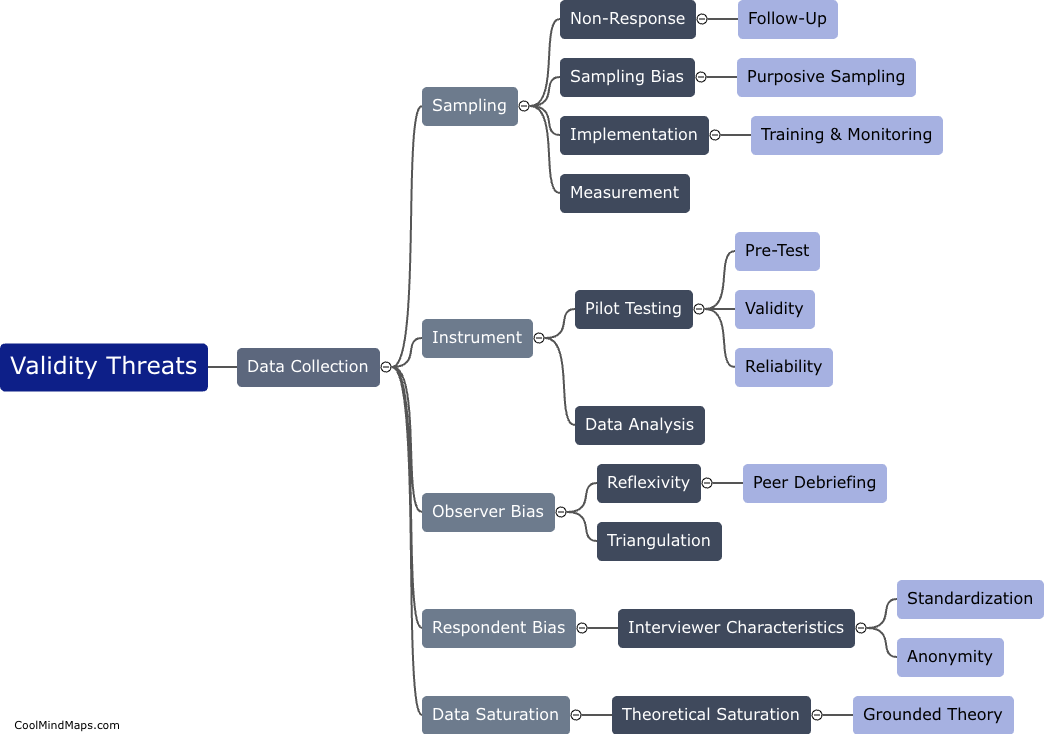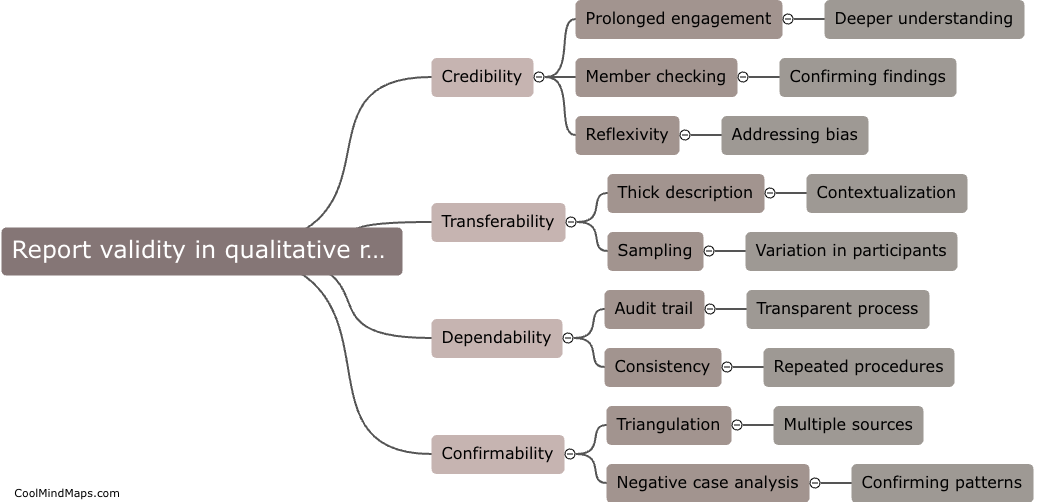How to ensure validity in qualitative research?
Validity in qualitative research refers to the accuracy and truthfulness of the data and findings obtained. To ensure validity in qualitative research, researchers must take appropriate measures to ensure that the data collected is reliable, credible, and representative of the research phenomenon. These measures may include establishing a clear research design, conducting thorough and comprehensive data collection, employing multiple data collection methods, maintaining consistency in data analysis and interpretation, and using rigorous data analysis techniques such as triangulation and member checking. Validity can also be strengthened through establishing trustworthiness, credibility, transferability, and dependability of the data. Therefore, it is important for researchers to pay close attention to the ethical considerations while conducting qualitative research.

This mind map was published on 22 April 2023 and has been viewed 108 times.
